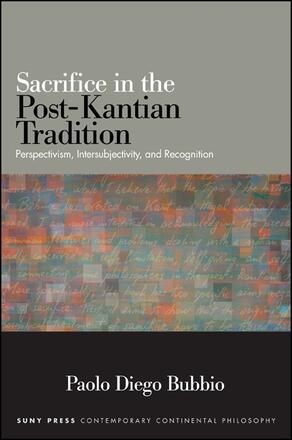
Sacrifice in the Post-Kantian Tradition
Perspectivism, Intersubjectivity, and Recognition
Alternative formats available from:
An examination of the philosophical notion of sacrifice from Kant to Nietzsche.
Description
In this book, Paolo Diego Bubbio offers an alternative to standard philosophical accounts of the notion of sacrifice, which generally begin with the hermeneutic and postmodern traditions of the twentieth century, starting instead with the post-Kantian tradition of the nineteenth century. He restructures the historical development of the concept of sacrifice through a study of Kant, Solger, Hegel, Kierkegaard, and Nietzsche, and shows how each is indebted to Kant and has more in common with him than is generally acknowledged. Bubbio argues that although Kant sought to free philosophical thought from religious foundations, he did not thereby render the role of religious claims philosophically useless. This makes it possible to consider sacrifice as a regulative and symbolic notion, and leads to an unorthodox idea of sacrifice: not the destruction of something for the sake of something else, but rather a kenotic emptying, conceived as a withdrawal or a "making room" for others.
Paolo Diego Bubbio is an Australian Research Council Future Fellow and Senior Lecturer at the University of Western Sydney, Australia. He is the coeditor (with Paul Redding) of Religion after Kant: God and Culture in the Idealist Era.
Reviews
"…Bubbio's book is an important philosophical work: not only as an excellent analysis of sacrifice in the post-Kantian tradition but also—and perhaps especially—because it confronts what is more alive in contemporary philosophy in a clear and productive way. " — Research in Phenomenology